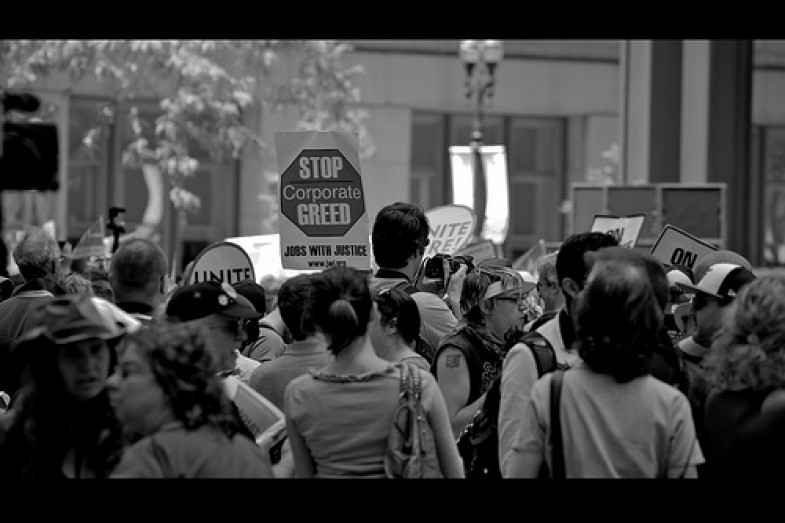Growing citizen disaffection for government is a stark reality of the current political moment. Coupled with the erosion of our country’s civic fabric, this causes polarization, powerlessness, and anger in communities nationwide. At On the Commons, we believe that rebuilding community connection with government will not happen without a fresh approach.
People all over the world seek tangible avenues for creating citizen power. Voting or making the occasional call to a policy maker are impoverished acts of democracy. People cannot have political agency if there is no consequential forum for their participation. We need genuine and permanent political structures that allow citizens to claim their rightful responsibility for decision-making. With no way to enable individuals to play a meaningful role, all efforts to regenerate civic life will falter.
Enter the commons. By increasing our recognition of what’s shared among us, and by emphasizing forms of “citizen engagement” that establish people’s agency as stewards and protectors of those resources (not just users and beneficiaries), a commons approach lays the groundwork for re-democratizing public decision making processes.
In our market-driven culture, most citizens have become mere consumers of public services who largely cede their power to a professionalized political sector. In contrast, a commons approach to governance seeks to foster a collaborative political and social space where individuals believe their thoughts and actions matter, where their ideas could actually come to life, and where they can not only stop threats to their community, but co-create a positive future. Initiatives to claim the commons provide a means to re-enliven an authentic community, a sense of belonging, and every citizen’s rightful role in decision making processes that affect us all.
Since our founding ten years ago, On the Commons has played a leadership role in advancing discussion and exploration of on-the-ground models for regenerating public life and the public sphere. One arena of our deep exploration is our bioregional initiative, the Great Lakes Commons Initiative. Launched this past year in partnership with Indigenous, environmental, and social justice groups around the Great Lakes, the initiative addresses the urgent need to directly involve local citizens in shaping the future of the Lakes and lake communities.
The failure of existing forms of Great Lakes governance to fully protect the waters and the interests of those who depend on them is deeply troubling. While a multitude of organizations are working throughout the region, issue and advocacy work that does not address the inadequacies of the current governance framework will likely be overwhelmed by the sheer number of threats to the Lakes. While there is no simple answer to this problem, the commons offers an alternative set of decision-making criteria and governance propositions—including focusing on the bioregion as a whole rather than just its constituent political and jurisdictional parts—that provide a greater locus of power for “commoners” and commons interests.
The goal of the Great Lakes Commons Initiative is to declare the Great Lakes a living commons with the necessary legal, social, and governance structures in place to fundamentally change the level of citizen participation in decisions about water in the region. We have developed a multi-prong approach to what we anticipate being a sustained, multi-year effort. The most groundbreaking aspect of our work is the collaborative creation of a Great Lakes Commons Charter, a social and political tool for claiming the Great Lakes as a commons. Traditionally, a social charter is the basis for commons governance, setting out the understandings, rights, rules, and incentives of a community—at multiple jurisdictional levels—to protect a common resource.
The drafting of a Great Lakes Commons Charter itself is a strategy for reviving authentic civic engagement and reinventing a stewardship culture around the Great Lakes. Because the people of any given commons give legitimacy to a social charter, we will undertake a highly participatory and democratic process to create the social charter.
To initiate this process, we are hosting a set of galvanizing events around the Lakes to reconnect people to their Great Lakes commons; enliven an alternate framework of bioregional identity; engage people in the creative process of articulating a shared vision for stewarding the Lakes; and plant the seeds for new governance practices and structures.
While there is no one answer to the crisis we face in the relationship between America’s citizens and her government, the work to reclaim our commons offers one way to create the vibrant civil society we know we need.




